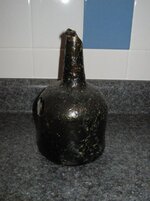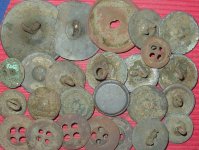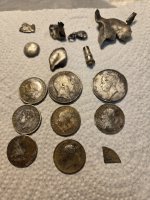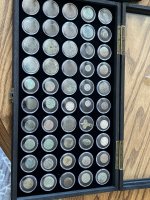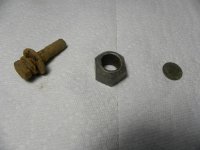G
Grenadaresearch
Guest
 Why are onion bottles so rare to find why diving in old harbours, is it that the contents were so rare? Ive only seen one found out of hundreds and out of the ten or so bottle divers I know they themselves can only mention the odd one?
Why are onion bottles so rare to find why diving in old harbours, is it that the contents were so rare? Ive only seen one found out of hundreds and out of the ten or so bottle divers I know they themselves can only mention the odd one?Im curious please advise.
James



